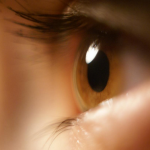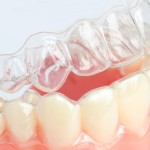
David Hallford summarises a recent systematic review and meta-analysis on the effectiveness of psychotherapy for depression across the lifespan.
[read the full story...]
David Hallford summarises a recent systematic review and meta-analysis on the effectiveness of psychotherapy for depression across the lifespan.
[read the full story...]
A group of UCL Mental Health Masters students summarise a recent literature review that explores the potential pathways to ADHD remission.
[read the full story...]
André Tomlin reports on a new network meta-analysis that brings together the best available evidence comparing the efficacy and acceptability of 21 antidepressants for the acute treatment of adults with major depressive disorder.
This groundbreaking review of 522 trials is the largest ever meta-analysis in psychiatry, and finds that antidepressants are more effective than placebo for short-term treatment of acute depression in adults.
[read the full story...]
In this blog, Tara Quinn-Cirillo considers a study which finds out if people with learning disabilities and with diabetes are getting access to eye screening tests.
[read the full story...]
Genevieve Young Southward takes a look at a recent study on the incidence, types and causes of injury in family and paid carers of adults with intellectual disabilities in Scotland.
[read the full story...]
In this blog, Tracey Howe looks at a a new quality standard on the assessment and management of osteoarthritis in adults by NICE UK.
[read the full story...]
The use of clear orthodontic aligners is increasing, despite searching a wide range of databases this review only identified a limited number of small studies. The quality of the studies was not sufficient to draw any evidence-based decisions on the effectiveness of orthodontic aligners so better quality studies are needed.
[read the full story...]
There is a well-established association between sugar and dental caries which was reinforced in a recent systematic review by Moynihan and Kelly (Dental Elf 12th Dec 2013). S ugar-sweetened beverages (SSB) which have sucrose (table sugar), high-fructose corn syrup or fruit- juice concentrates, either as purchased or added after purchase have seen sales and consumption [read the full story…]

The 2009 adult dental survey conducted in England, Wales, and Northern Ireland was the 5th decennial survey undertaken in the UK. It was based on a two-stage cluster sample and of 12,054 eligible households 7,233 participated. Of the 13,509 adults in these households 11,382 participated (84%). The survey consisted of a clinical examination and a [read the full story…]

There is a tendency to focus on the prevention of dental caries in children yet is it is a problem that continues to affect old and young alike. While considerable time and effort is spent on preventive programmes for children far less consideration to adults. The American Dental Association Center for Evidence-Based Dentistry has published [read the full story…]